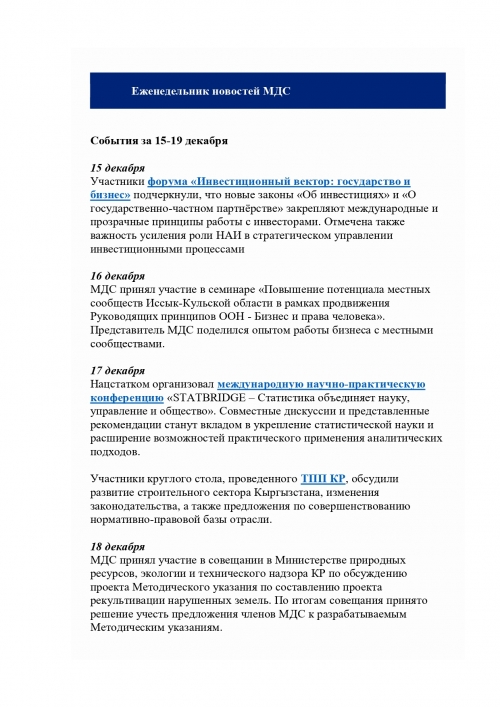News /
IBC news /
IWG discusses gender issues and women's labor safety
On February 4, 2020, a meeting of members of the Interdepartmental Tripartite Working Group on improving labor legislation of the Kyrgyz Republic was held.
The IWG consists of representatives of non-governmental, international organizations and experts.
The representative of the International Business Council is an IWG member.
The meeting participants familiarized themselves with international labor standards aimed at ensuring equal treatment and equal opportunities for workers, men and women, and ILO approaches and experience in ensuring gender equality in the field of occupational safety and health.
ILO Specialist from Geneva Dr. Yuka Ujita reported on a risk management system for occupational safety and health as well as hazardous work for women.
IWG participants visited women's jobs in hotels, laundry, restaurant, etc.
The IWG agreed its further actions and the schedule for improving measures to protect women from dangers and risks in the workplace.
**
The Ministry of Labor and Social Development of the Kyrgyz Republic continues to discuss the results of the analysis of legislation in the field of women's labor.
The recommendations provided by the EBRD and ILO indicate that protective measures for women's employment, based on stereotypes of their professional abilities and role in society, violate the principle of equal opportunities and equal treatment of men and women workers.
The ILO Committee of Experts on the Application of Conventions and Recommendations advised the Government of the Kyrgyz Republic to revise the “List of productions, works, professions and positions with harmful and (or) dangerous working conditions that prohibit the use of women’s labor”. It is recommended that any measures restricting women's access to employment and various activities be used solely to protect motherhood.
The Ministry of Labor and Social Development is conducting the final stage of consultations with social partners to agree on an approach to revise the List in accordance with international labor standards and introduce a methodology for conducting risk assessments and identifying hazardous jobs for women.




























